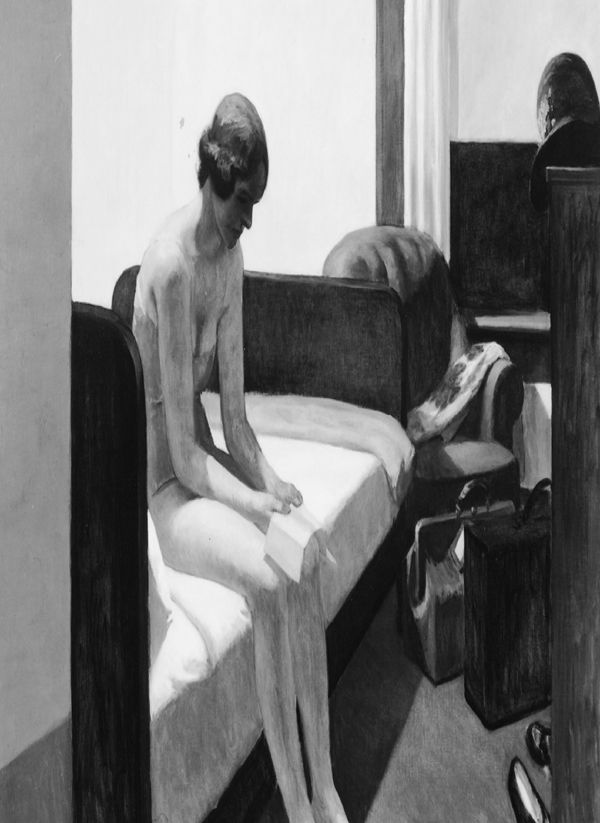8
8
雷蒙德·威廉斯 [10] 曾指出,旅行,或者那种漫无目的的漂泊的过程,其价值在于它们能让我们体验情感上的巨大转变,这种转变可以追溯到18世纪末期,那时候出现了一种现象,外来的旅行者似乎比当地人道德高尚:
The value we ascribe to the process of travelling, to wandering without reference to a destination, connects us, the critic Raymond Williams once proposed, to a broad shift in sensibilities dating back some 200 years, whereby the outsider came to seem morally superior to the insider:

爱德华·霍珀:《旅馆房间》,1931年
From the late 18th century onwards, it is no longer from the practice of community but from being a wanderer that the instinct of fellowfeeling is derived. Thus an essential isolation and silence and loneliness become the carriers of nature and community against the rigours, the cold abstinence, the selfish ease of ordinary society.
十八世纪以来,人类的同情和了解不再源自于社群活动,而是来自于人们的漂泊经验。因此一种基本的疏离、沉默和孤独已成为人性和社群的载体,对抗着普通社会阶层的苛严僵固、冷漠无情和自私自利的闲适。
Raymond Williams, The Country and the City
——雷蒙德·威廉斯:《乡村和城市》
如果我们在加油站,还有汽车旅馆等地方发现了生活的诗意,如果我们为机场和火车车厢所吸引,其原因也许是我们明确地感觉到这些偏僻孤立的地方给我们提供了一种实实在在的场景,使我们能暂时摆脱因循僵滞的日常生活中难以改易的种种自私的安逸、种种陋习和拘囿,不管它们在设计上是如何的不完美、不舒适,在色彩上是如何的不含蓄,在灯光上是如何的不柔和。
If we find poetry in the service station and motel, if we are drawn to the airport or train carriage, it is perhaps because, in spite of their architectural compromises and discomforts, in spite of their garish colours and harsh lighting, we implicitly feel that these isolated places offer us a material setting for an alternative to the selfish ease, the habits and confinement of the ordinary, rooted world.







